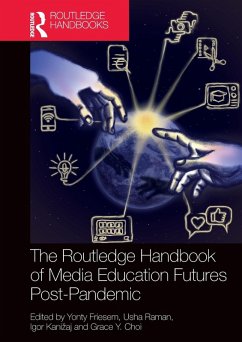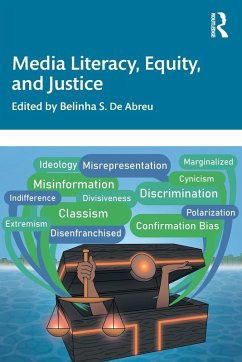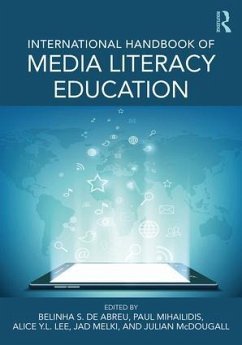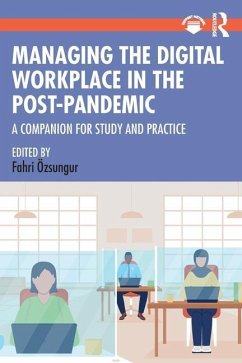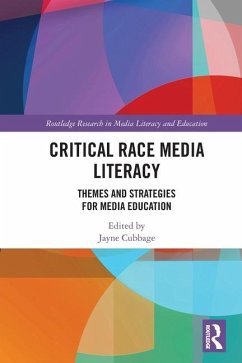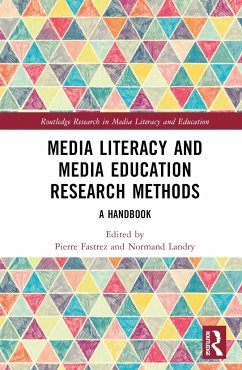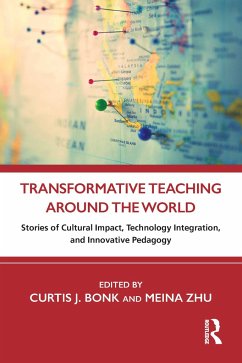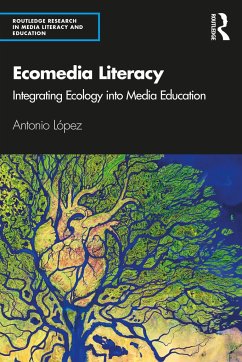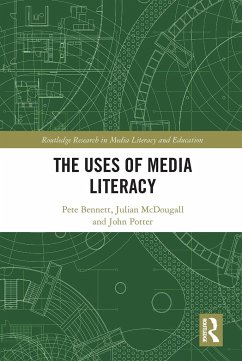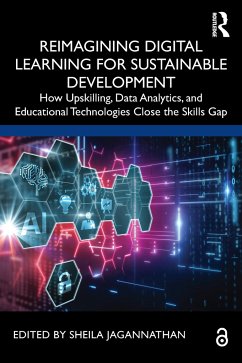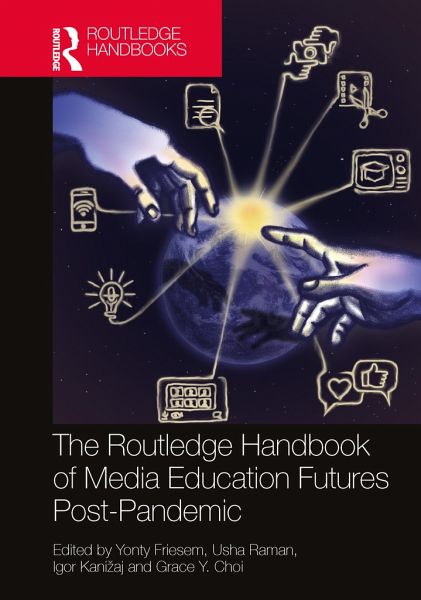
The Routledge Handbook of Media Education Futures Post-Pandemic
Versandkostenfrei!
Versandfertig in 6-10 Tagen
246,99 €
inkl. MwSt.

PAYBACK Punkte
123 °P sammeln!
This handbook showcases how educators and practitioners around the world adapted their routine media pedagogies to meet the challenges of the COVID-19 pandemic, which often led to significant social, economic, and cultural hardships.Combining an innovative mix of traditional chapters, autoethnography, case studies, and dialogue within an intercultural framework, the handbook focuses on the future of media education and provides a deeper understanding of the challenges and affordances of media education as we move forward. Topics range from fighting disinformation, how vulnerable communities co...
This handbook showcases how educators and practitioners around the world adapted their routine media pedagogies to meet the challenges of the COVID-19 pandemic, which often led to significant social, economic, and cultural hardships.
Combining an innovative mix of traditional chapters, autoethnography, case studies, and dialogue within an intercultural framework, the handbook focuses on the future of media education and provides a deeper understanding of the challenges and affordances of media education as we move forward. Topics range from fighting disinformation, how vulnerable communities coped with disadvantages using media, transforming educational TV or YouTube to reach larger audiences, supporting students' wellbeing through various online strategies, examining early childhood, parents, and media mentoring using digital tools, reflecting on educators' intersectionality on video platforms, youth-produced media to fight injustice, teaching remotely and providing low-tech solutions to address the digital divide, search for solutions collaboratively using social media, and many more.
Offering a unique and broad multicultural perspective on how we can learn from the challenges of addressing varied pedagogical issues that have arisen in the context of the pandemic, this handbook will allow researchers, educators, practitioners, institution leaders, and graduate students to explore how media education evolved during 2020 and 2021, and how these experiences can shape the future direction of media education.
Combining an innovative mix of traditional chapters, autoethnography, case studies, and dialogue within an intercultural framework, the handbook focuses on the future of media education and provides a deeper understanding of the challenges and affordances of media education as we move forward. Topics range from fighting disinformation, how vulnerable communities coped with disadvantages using media, transforming educational TV or YouTube to reach larger audiences, supporting students' wellbeing through various online strategies, examining early childhood, parents, and media mentoring using digital tools, reflecting on educators' intersectionality on video platforms, youth-produced media to fight injustice, teaching remotely and providing low-tech solutions to address the digital divide, search for solutions collaboratively using social media, and many more.
Offering a unique and broad multicultural perspective on how we can learn from the challenges of addressing varied pedagogical issues that have arisen in the context of the pandemic, this handbook will allow researchers, educators, practitioners, institution leaders, and graduate students to explore how media education evolved during 2020 and 2021, and how these experiences can shape the future direction of media education.





